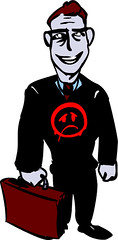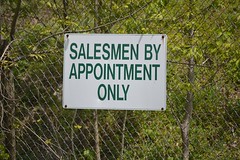Ah, The Twitter. Maybe you’re there with hundreds of followers, or maybe you’re not sure you want to “tweet,” but the micro-blogging site is definitely a popular Internet hangout. And it could be a great way to connect with your readers, too!
In other news, how’s your Nano going? Come tell me, I want to hear!
How to jump into Twitter
 Although I’ve been on Twitter for four or five years (I used to work in Internet marketing, and Twitter was shiny and new back then, so I had to do it!), I don’t really feel like enough of an expert to offer an intro to Twitter. I’ve also always been the type who wants to figure things out for herself. However, if you need a basic introduction to Twitter shorthand and etiquette, here’s a good place to start.
Although I’ve been on Twitter for four or five years (I used to work in Internet marketing, and Twitter was shiny and new back then, so I had to do it!), I don’t really feel like enough of an expert to offer an intro to Twitter. I’ve also always been the type who wants to figure things out for herself. However, if you need a basic introduction to Twitter shorthand and etiquette, here’s a good place to start.
Now, once you’re familiar with how Twitter works, you’ll need to figure out how it will work for you—because if it doesn’t work for you, you’re not going to want to use it, right?
We’ve talked about this pattern before, but the first thing you’ll want to do is observe. Watch how people use Twitter, both for marketing  purposes and for personal purposes. You’ll note that on Twitter—as on many other platforms (and in person)—constantly talking about yourself and your book is generally considered bad form, and it’s a turn off for many people.
purposes and for personal purposes. You’ll note that on Twitter—as on many other platforms (and in person)—constantly talking about yourself and your book is generally considered bad form, and it’s a turn off for many people.
You’ll also see how people form friendships and connections on the site, and hopefully jump in and form them as well, moving into a connect phase. With social media, it’s usually the personal connections that count the most—something I hope you’ll see if you observe 😉 . These personal connections can be the most important part of your strategy. Look for people who are part of your audience, whom you would actually like to talk/Tweet to. Their Tweet streams look interesting, and they’re having conversations you’re interested in. You can also use site features like Lists (or groups on other sites) to look for people with similar interests, and watch how they converse with one another, then connect with them as well.
Remember: we’re talking about building real connections, not just saying, “I’m going to target you because you are in my audience! Now I will address you as an audience but will never actually respond if you happen to acknowledge me! Prepare to be spammed!”
Ahem.
Putting Twitter to good use
Once you’ve observed and connected, you’ll want to implement your observations. Maybe you saw someone with clever Tweets about their characters, or who retweeted good reviews in an interesting way, or whose site you checked out just because s/he was so friendly and helpful.
Naturally, you’ll also want to highlight your USP, your unique selling proposition, when it’s appropriate—perhaps in a quick reference in your Twitter profile. (Note that there, it’s less obtrusive—you’re kind of supposed to talk about yourself on your profile, after all.) For me, I often blog about writing craft because it’s something I’m passionate about. When I have time, I also like to share great articles on writing craft and marketing through my Twitter. So I mention writing craft in my Twitter profile—trying to highlight a benefit of following me, and show people what to expect.
The best uses of Twitter are to:
- build your brand, and
- connect with your readers
Twitter can become a part of your overall brand message. My friend Ali Cross has been doing a great series on author branding, which I highly recommend, to help you discover your brand and put it to use in defining your social media presence.
Twitter’s also a great place to connect with your current readers. Maybe they’ll @ you or DM when they read your book, or maybe you’ll discover them by searching for your name or your book’s title. (If you use a client like TweetDeck, you can even set up a whole column devoted to that search, so whenever you check it, you see the latest results.) No matter how you find them, you can use that opportunity to say thank you for reading (not to argue with negative feedback, please!), and hopefully build a relationship, become friends with that person.
I cannot say I’ve ever come across an author on Twitter and decided I simply must read their next novel because they Tweeted about it 16 times or were just so witty I couldn’t help it. On the other hand, I have decided to buy novels by people that I’ve become friends with via Twitter. I’ve also read novels based on recommendations by friends and fellow authors on Twitter.
As always, you’ll want to promote your Twitter profile on your website or blog, since it can be such a great way to connect. An easy way to do this is with a Twitter button.
However, there are also a few things to avoid on Twitter.
Twitter No-nos
Unless it’s an important part of your brand, I strongly advise against saying anything about politics, etc., on Twitter. Remember that it’s public, and it’s archived. I can’t tell you how many people I have unfollowed, decided not to follow, or even thought twice about working with in a professional capacity because of the attitudes on their Twitter feeds. Even if I agree with you, I produce more than enough vitriol to fill my life’s quota all by myself; I don’t want yours. (It’s been a loooong election season.)
Another major turn off is using a program or website to automatically send a Direct Message (DM) to new followers encouraging them to “Check out my book TITLE here amazonlink!” Remember that someone following you on Twitter is an invitation to connect, but not an invitation to spam, and that’s exactly what this feels like. I have unfollowed actual, real-life friends over this. Yep.
As with all forms of marketing, becoming a 24-hour infomerical for you and your books is probably not the best way to attract new readers. In fact, I’m not convinced Twitter is a great way to find new readers, but I do think it’s a great way to find your current readers and connect with them. But they definitely don’t need constant reminders about the book they just read!
What do you think? What authors do you enjoy following on Twitter? Why? How do you think an author can best put Twitter to use? And how’s Nano going? (I hit 50,000 words Saturday!) Come join the conversation!
Image credits: Twitter; connections by Matthew Anderson, Montage Communications


